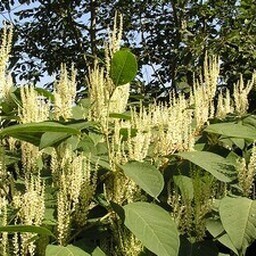The Ministry of Climate is amending the Nature Conservation Act. Now, landowners themselves must combat invasive species on their land. The previous law only prohibited the cultivation and release of invasive species into nature.
Merike Linnamägi, an advisor at the Ministry of Climate, explained that the previous law was ambiguous. Now, landowners have an obligation to combat six plant species: prairie milkweed, willow herb, American skunk cabbage, and three species of knotweed.
Andry Krass, chairman of the Estonian Landowners' Association Board, believes that landowners may not be able to identify and combat various plants. Combating requires money. For example, last year, bear's breeches control cost an average of 188 euros per hectare.
Linnamägi says that combating six species should not be difficult. The plants are harmless to humans and can be combated independently. For instance, they can simply be pulled out or cut.
However, not every landowner may recognize these plants. For example, if a person has recently purchased land, they may not know whether invasive species are growing there. Linnamägi advises landowners to familiarize themselves with these plants and carefully inspect their land.
The Landowners' Association is concerned that landowners will start blaming each other to avoid fines. For example, the question may arise as to who is responsible for the invasive species appearing on the land.
The Ministry of Climate promises that people will not be fined immediately. First, guidance will be provided on how to combat the species, and a deadline will be given. If the species are not combated by the deadline, further steps will be considered. The state may order the control and demand the cost from the landowner.

